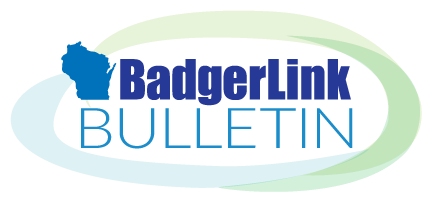The BadgerLink Team highlights a Wisconsin library each month as the BadgerLink Library of the Month. In the past, we have highlighted many public and school libraries, but this month we are excited to share a new development in the Wisconsin library community that is completely online and accessible to all. This month, we are recognizing the newly-launched Wisconsin service hub of the Digital Public Library of America (DPLA). The Wisconsin service hub went live on August 3, 2016, after nearly three years of planning and preparation, and now provides free and easy access to Wisconsin’s digital collections.
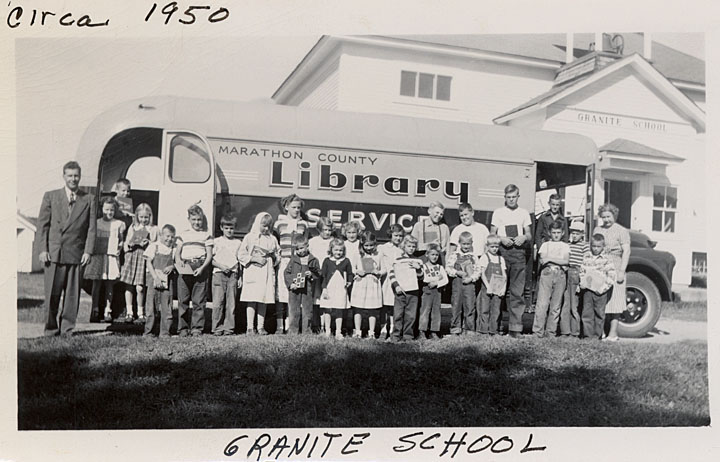 Marathon County Library Service Bookmobile at Granite School ca 1950
Marathon County Library Service Bookmobile at Granite School ca 1950Photo courtesy Marathon County Public Library. Link to item in DPLA
The Wisconsin Service Hub of the DPLA is a joint project of the Milwaukee Public Library, UW-Madison, UW-Milwaukee, WiLS, the Wisconsin Department of Public Instruction, the Wisconsin Historical Society, and Marquette University, and it builds upon and draws from the Recollection Wisconsin statewide digital collections program. The BadgerLink Team connected with WiLS’ Emily Pfotenhauer, the program manager for Recollection Wisconsin and the service hub, who shared the story of how the hub came to be, and what’s on the horizon.
So what is DPLA, and what is a service hub? DPLA provides cultural organizations large and small with a way to provide access to their digitized cultural heritage resources through one single platform. Images remain hosted locally by libraries, historical societies, colleges, and universities, while the metadata from each item is ingested by DPLA, providing users with a powerful way to search across all available collections nationwide. DPLA uses a “pond to lake to ocean” analogy to describe the relationship of DPLA to cultural heritage institutions and service hubs: Content from local “ponds” like libraries and archives is sent through streams to a “lake,” which is the service hub, and then from there through a river and to the “ocean” that is DPLA.
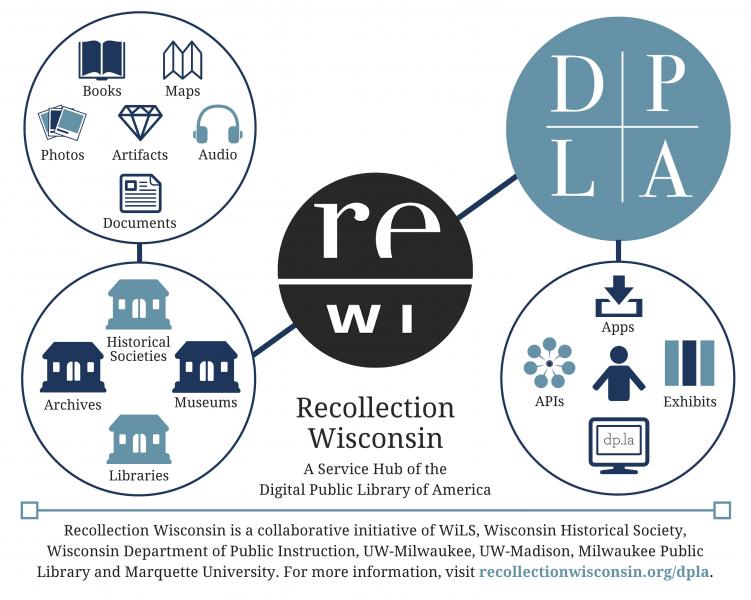 Image courtesy Recollection Wisconsin
Image courtesy Recollection Wisconsin
The “stream” that brings content from local organizations to the service hub is, in part, a new metadata aggregator that was created especially for this ongoing project by the Shared Development Group at the University of Wisconsin-Madison General Library System. This new aggregator has allowed the amount of data harvested by Recollection Wisconsin to nearly double. Unlike the Recollection Wisconsin portal, which offers access to Wisconsin-based collections that are specifically about Wisconsin history and culture, the DPLA service hub aggregator brings together Wisconsin-based collections on any topic. This will provide greater access to many Wisconsin-based collections that are not about Wisconsin, like Wisconsin Historical Society’s Freedom Summer collection, faculty research from colleges and universities, and more.
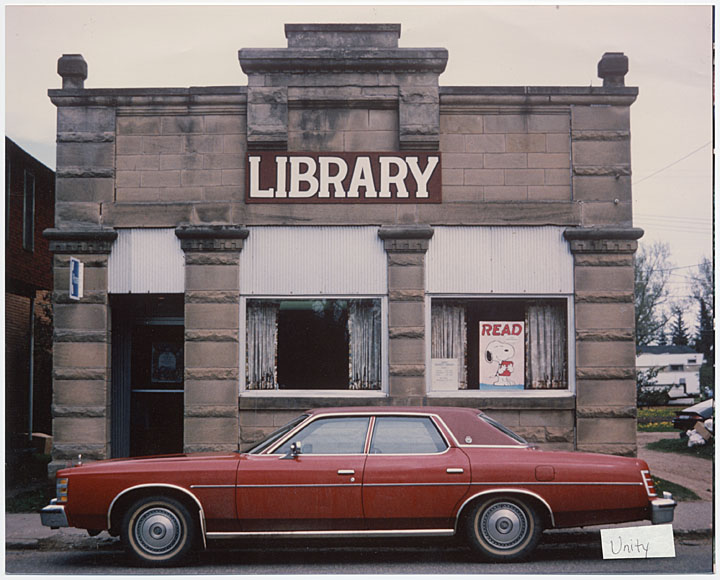 Marathon County Public Library - Unity Branch ca. 1992
Marathon County Public Library - Unity Branch ca. 1992Photo courtesy of the Marathon county Public Library
Link to item in DPLA
While 19 other states have already established service hubs, Wisconsin’s hub is starting out as the 5th largest in size, offering almost 400,000 records from 185 collections. Pfotenhauer explained that despite having an established statewide digital collections program already in place, connecting with existing DPLA service hubs was crucial for getting the Wisconsin hub off the ground. Some influential hubs who provided advice during the planning process included the Empire State Digital Network in New York, the South Carolina Digital Library, and the Minnesota Digital Library.
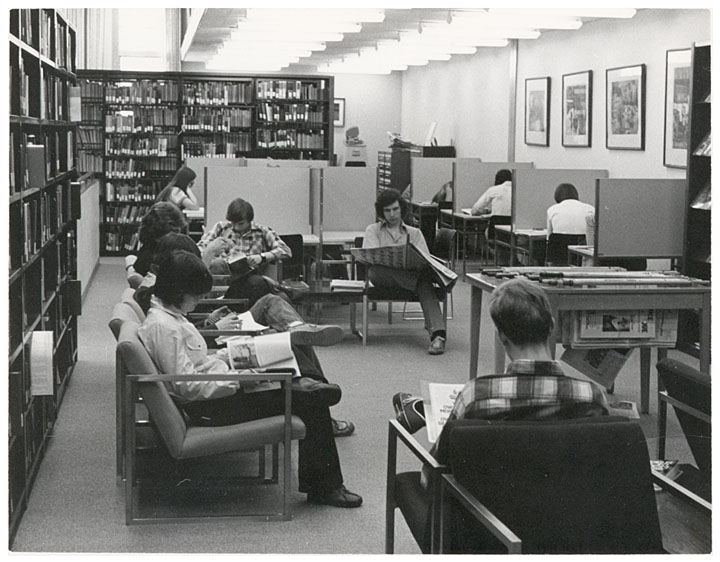 Library at UW Marathon County ca. 1980
Library at UW Marathon County ca. 1980Photo courtesy of the University of Wisconsin-Marathon County
Link to item in DPLA
Wisconsin’s partnership with DPLA represents a commitment among participating Wisconsin institutions to supporting a national digital network for accessing and sharing cultural heritage resources. As described in the 2014 Aspen Report on Re-Envisioning Public Libraries, a local platform “must be connected across a shared platform in which libraries can coalesce to work—a network of libraries and other knowledge institutions. ...This digital platform would be a network of federated public libraries and other knowledge-creating institutions, with central hubs for the purpose of connecting but local autonomy and control over the platform itself.” Cheers to the Wisconsin DPLA service hub and all people and institutions involved for rising to the challenge of promoting Wisconsin’s rich cultural heritage to the nation and the world!
Check out resources from Wisconsin libraries and archives in DPLA, and visit recollectionwisconsin.org/dpla to learn more about the service hub.

